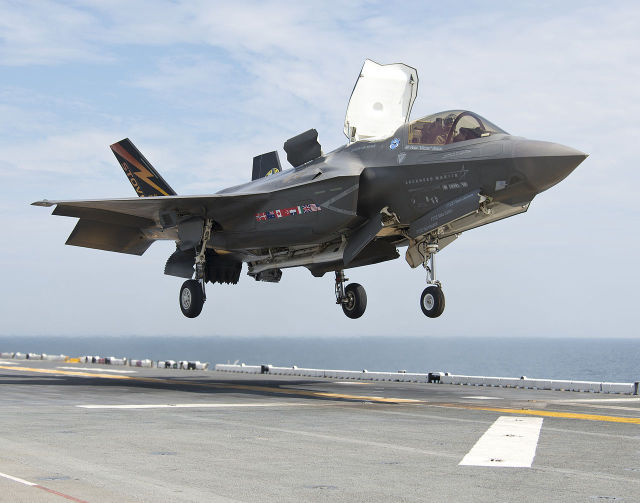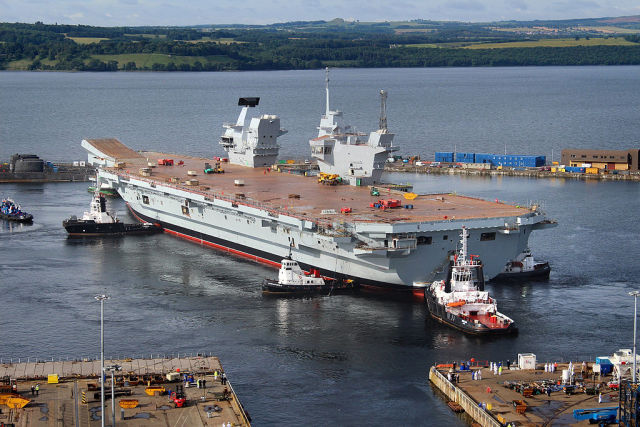
In a rare display of increased military spending, George Osborne has told the BBC that the UK will significantly speed up its acquisition of new carrier-based F-35 stealth fighters. The chancellor of the exchequer also told the BBC yesterday that anti-terror spending would be increased by 30 percent. These comments precede Wednesday's Spending Review, where Osborne is expected to announce massive austerity measures that will cut the government's annual budget by around £20 billion, with the aim of eliminating the country's deficit by 2020.
The UK's original plan was to have eight F-35s in service by 2023. Now, according to Osborne, we'll have 24 of the jets, split across the UK's two new aircraft carriers, the HMS Queen Elizabeth and HMS Prince of Wales.
"We are going to step up the aircraft carrier punch of the United Kingdom. We are going to make sure that when these aircraft carriers are available they are going to have planes that can fly from them in force," Osborne told the BBC. "By 2023, we will be able to have these jets—some of the most powerful in the world—the F-35, on the decks of these carriers and Britain, second only to the United States, will be able to project power abroad in order to defend ourselves at home."
The F-35, produced by Lockheed Martin, is an important aircraft for the US, UK, and other members of NATO. While the US is the primary customer and backer (and at great expense, too), the UK was the sole "level 1" partner, contributing about £1.7 billion to the development of the plane. The UK is expected to purchase 138 of the planes, split across both "A" (conventional) and "B" (short takeoff and vertical landing) configurations.

The first 24 planes, it seems, will be stationed on the UK's two new aircraft carriers: the HMS Queen Elizabeth and HMS Prince of Wales, both of which are scheduled to enter service in 2020. There had been plans for the HMS Prince of Wales to have a catapult and arrestor gear for the "C" variant F-35, but they were scrapped due to the extra costs and delays that would've been incurred. Each carrier is capable of carrying up to 40 aircraft—a mix of F-35s and Merlin helicopters—and, as Osborne noted, they'll put the UK into second place behind the US. The UK currently has a grand total of zero carriers in service.
Beyond the increase in defence spending, Osborne also spoke to the BBC about some other things that we can expect from Wednesday's Spending Review—including that rather hefty 30 percent bump on anti-terror spending. "...When it comes to the Spending Review, we are going to make the argument that protecting the British people is our first duty as a government, that economic security is a vital part of national security. And precisely because we are making difficult decisions in other parts of our budget, we can give our military more kit, we can increase our counter-terrorism budget by 30%."
The increases in defence and anti-terror spending, plus the aforementioned plan to cut the government's overall annual budget by around £20 billion, will mean extensive cuts to most other areas of government spending. The police force is expected to take a big hit, along with the department of energy and climate change, and the department for business, innovation, and skills.
reader comments
118